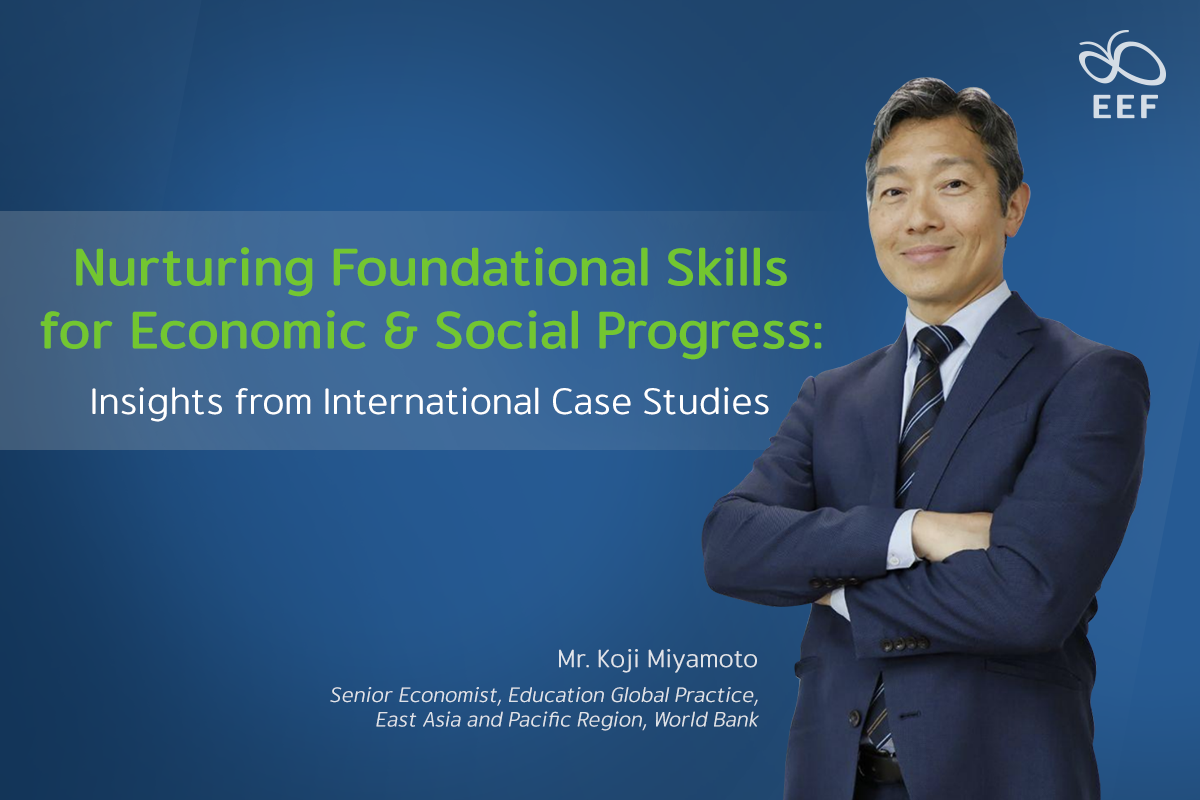
The foundational skills play an important role in driving economic and social progress, a presentation delivered by Mr. Koji Miyamoto, Senior Economist, Education Global Practice, East Asia and Pacific Region at the World Bank, shined a spotlight on the significance of foundational skills in Thailand. Drawing on international case studies, the presentation revealed strategies to foster these skills and uncovers the challenges and opportunities presented by the digital transformation era. As we delve into the low level of digital proficiency among workers, there is a critical need to bridge the gap between education and industry demands and the broader issue of insufficient foundational skills among youth and adults worldwide.
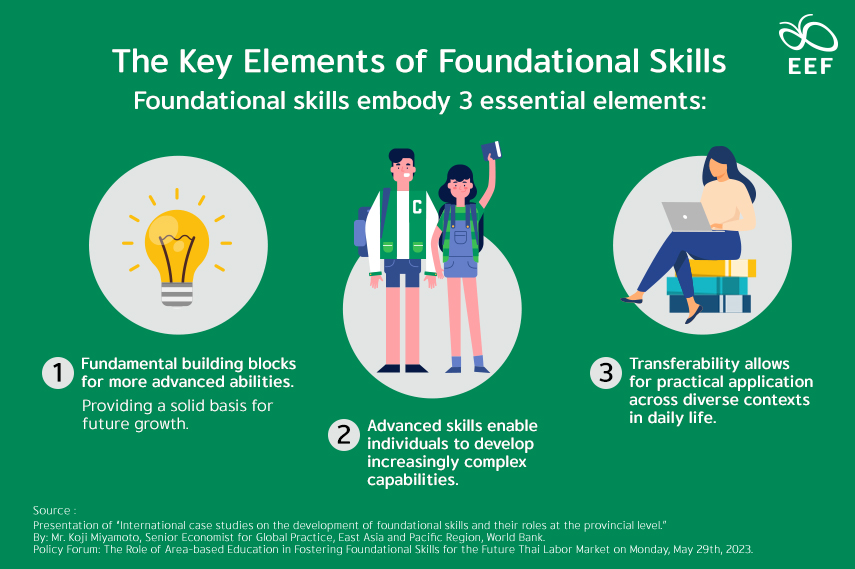
The Key Elements of Foundational Skills:
Foundational skills embody three essential elements. Firstly, they were fundamental building blocks for more advanced abilities, providing a solid basis for future growth. Secondly, these advanced skills enable individuals to develop increasingly complex capabilities. Lastly, their transferability allows for practical application across diverse contexts in daily life.
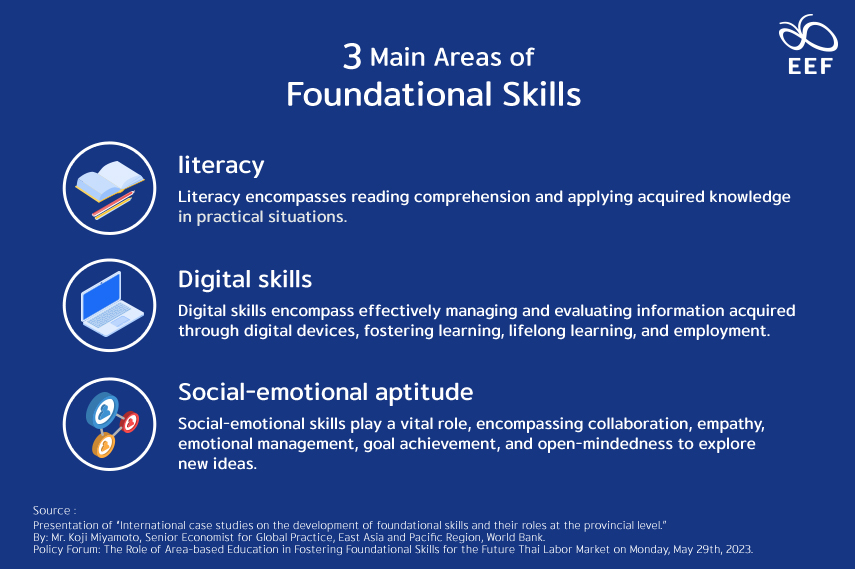
Foundational skills emphasize three main areas: literacy, digital proficiency, and social-emotional aptitude. Literacy encompasses reading comprehension and applying acquired knowledge in practical situations. Digital skills encompass effectively managing and evaluating information acquired through digital devices, fostering learning, lifelong learning, and employment. Social-emotional skills play a vital role, encompassing collaboration, empathy, emotional management, goal achievement, and open-mindedness to explore new ideas. There are several good initiatives around the globe. For example, In New South Wales, Australia, the government used project-based learning to foster foundational skills. The Chicago public school system has significantly invested in improving social-emotional learning to tackle existing challenges in the United States.
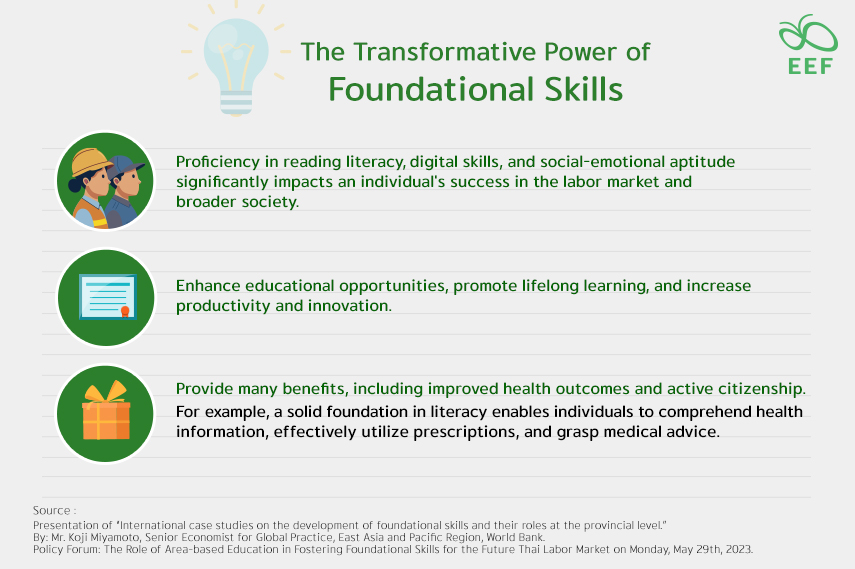
The Transformative Power of Foundational Skills:
Extensive research attests to the transformative power of foundational skills. Proficiency in reading literacy, digital skills, and social-emotional aptitude significantly impacts an individual’s success in the labor market and broader society. These skills enhance educational opportunities, promote lifelong learning, and increase productivity and innovation. Moreover, foundational skills provide many benefits, including improved health outcomes and active citizenship. For example, a solid foundation in literacy enables individuals to comprehend health information, effectively utilize prescriptions, and grasp medical advice. The positive impact of foundational literacy skills on wage increases across many countries exemplifies their transformative potential.
Approaches to Fostering Foundational Skills:
Global evidence highlights diverse approaches to fostering and developing foundational skills. Foundational skill development begins with basic education and training programs, starting from early childhood through primary and secondary schools. Introducing innovative curricula, experiential learning, and extracurricular activities contributes significantly to skill cultivation. Lifelong learning and continuing education enhance foundational skills among youth and the existing workforce. From formal learning activities to digital training programs and mentoring opportunities, many initiatives are available to nurture and enhance foundational skills.
Success Stories and Collaborative Efforts:
Across the globe, inspiring success stories demonstrate the effectiveness of various approaches in developing foundational skills. Reforms in basic education, such as incorporating methodologies that foster social-emotional skills and project-based learning, have successfully addressed existing challenges. Collaboration between the private sector and educational institutions, including enterprises and innovative entrepreneurs, has proved instrumental in aligning learning activities with labor market requirements. Examples mentioned are; the Korean Meister High School system, a work-study dual program implemented in 52 vocational education and training institutions at the secondary level; The Office of Vocational Education Commission and the Thailand Profession Qualification Institute have established basic education and occupational standards in Thailand. The Public-private partnerships have created a more relevant and market-driven learning environment. Learning standards become powerful when they offer detailed benchmarks and indicators, are developmentally appropriate across educational stages, and maintain consistency over time. For instance, the State of Washington in the US has established comprehensive learning standards for social-emotional skills that span from primary to adulthood, allowing each learner to benefit from what they have learned from the previous stages as they gradually go up the educational learning ladder, ensuring a consistent progression of skills.
Measuring Foundational Skills:
Efforts are underway to measure foundational skills and promote the development of education and training systems. Traditionally, the focus has primarily been on academic skills, but there is a growing emphasis on measuring other foundational skills critical to the labor market and society. Initiatives such as PISA, PIAAC, and the OECD Survey of adult skills aim to assess foundational skills. The Thai Adult Skills assessment, conducted collaboratively with Thammasat University and other partners, represents a significant initiative in Thailand. These measurement endeavors ensure the effective development and improvement of foundational skills.
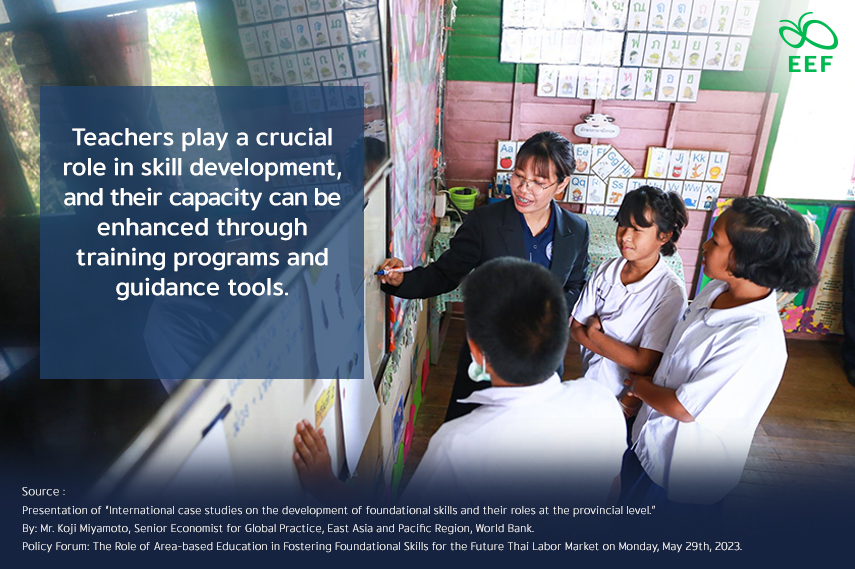
Provinces and Cities Driving Skill Development:
Provinces and cities are pivotal in establishing effective education and training systems prioritizing foundational skills. Key elements include setting learning standards, improving curricula, incorporating extracurricular activities, enhancing teacher capacity, and implementing assessments. Learning standards provide benchmarks for learners and teachers, ensuring consistency and progression. Teachers play a crucial role in skill development, and their capacity can be enhanced through training programs and guidance tools. Local jurisdictions have the unique opportunity to adapt and customize skill development strategies to address broader policy issues relevant to their areas, fostering innovation, productivity, and investment. For example, across all states and the District of Columbia, social and emotional learning is included in teacher certification requirements in the US. In the Philippines, teachers’ professional standards integrate the capacity to teach 21st-century skills, while Singapore offers experiential learning pedagogical programs for pre-service teachers. Its state is known for its effective education ecosystem centered around foundational skills as one of the core divers. It is also one of UNESCO’s global networks of learning cities supported by the EEF. In Mexico, they have improved teachers’ attitudes and norms, enabling them to embrace new pedagogical practices.
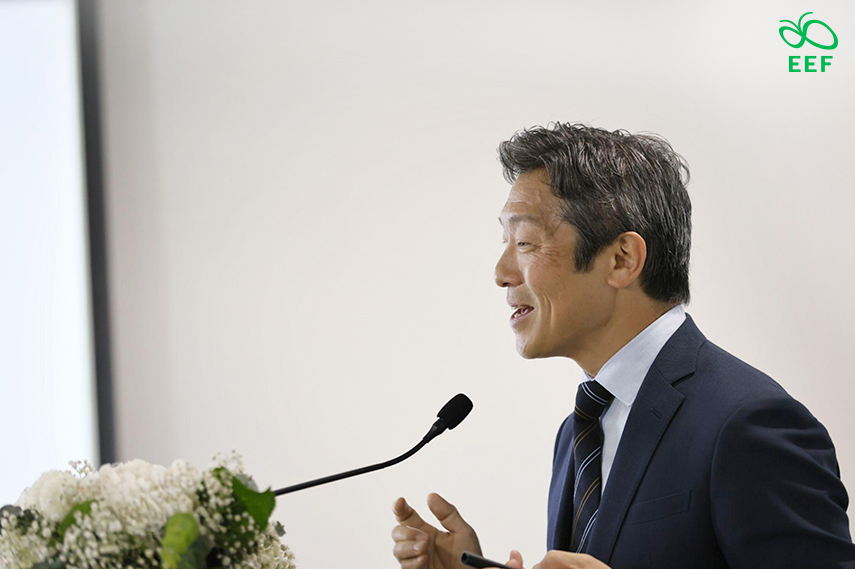
In conclusion, developing foundational skills is critical to economic and social progress. By delving into the insights from international case studies, we have uncovered effective strategies to foster these skills. Collaboration, innovative methodologies, and private-sector involvement are vital to cultivating foundational skills. The transformative power of these skills extends to educational opportunities, productivity gains, improved health outcomes, and active citizenship. As provinces and cities align their efforts with those of the central government, they become vital forces in propelling skill development forward. Thailand can build a robust education ecosystem that empowers individuals and drives national progress by focusing on foundational skills.
Source:
Presentation of “International case studies on the development of foundational skills and their roles at the provincial level.” By: Mr. Koji Miyamoto, Senior Economist for Global Practice, East Asia and Pacific Region, World Bank.
Policy Forum: The Role of Area-based Education in Fostering Foundational Skills for the Future Thai Labor Market on Monday, May 29th, 2023.
Event Record: https://www.facebook.com/EEFTH/videos/638069488226857/

